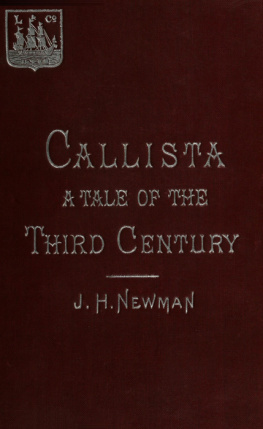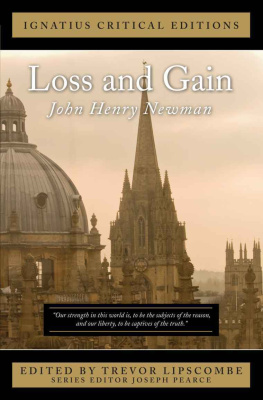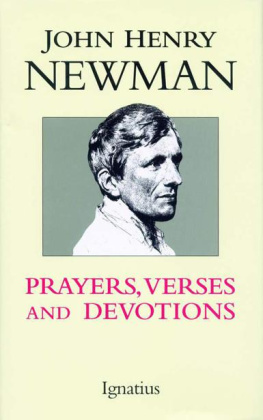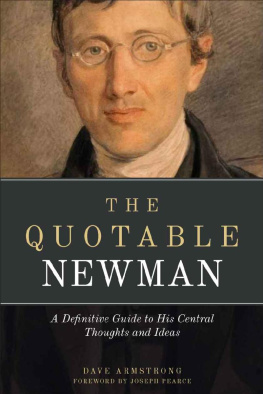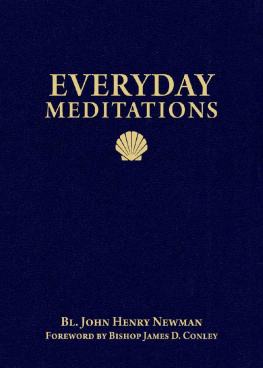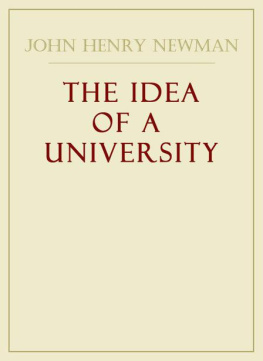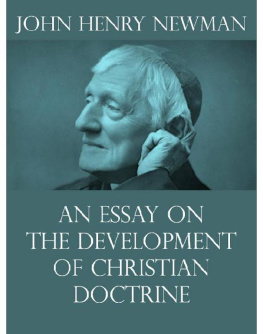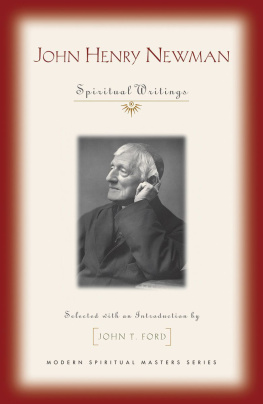John Henry Cardinal Newman - Mary The Second Eve
Here you can read online John Henry Cardinal Newman - Mary The Second Eve full text of the book (entire story) in english for free. Download pdf and epub, get meaning, cover and reviews about this ebook. year: 2015, publisher: TAN Books, genre: Science. Description of the work, (preface) as well as reviews are available. Best literature library LitArk.com created for fans of good reading and offers a wide selection of genres:
Romance novel
Science fiction
Adventure
Detective
Science
History
Home and family
Prose
Art
Politics
Computer
Non-fiction
Religion
Business
Children
Humor
Choose a favorite category and find really read worthwhile books. Enjoy immersion in the world of imagination, feel the emotions of the characters or learn something new for yourself, make an fascinating discovery.
- Book:Mary The Second Eve
- Author:
- Publisher:TAN Books
- Genre:
- Year:2015
- Rating:4 / 5
- Favourites:Add to favourites
- Your mark:
- 80
- 1
- 2
- 3
- 4
- 5
Mary The Second Eve: summary, description and annotation
We offer to read an annotation, description, summary or preface (depends on what the author of the book "Mary The Second Eve" wrote himself). If you haven't found the necessary information about the book — write in the comments, we will try to find it.
Mary The Second Eve — read online for free the complete book (whole text) full work
Below is the text of the book, divided by pages. System saving the place of the last page read, allows you to conveniently read the book "Mary The Second Eve" online for free, without having to search again every time where you left off. Put a bookmark, and you can go to the page where you finished reading at any time.
Font size:
Interval:
Bookmark:
MaryThe Second
Eve
John Henry Newman
Photograph and extracts with the permission of the Fathers of the Birmingham Oratory.
Copyright 1982 by Sister Eileen Breen, F.M.A.
Originally published in 1977 by Sister Eileen Breen, F.M.A. and reprinted in 1982 by TAN Books from her edition.
ISBN: 0-89555-181-0
TAN Books
Charlotte, North Carolina
www.TANBooks.com
1982
CONTENTS
PREFACE
This pamphlet consists of a series of extracts from some of the books written by John Henry Newman. The extracts are arranged systematically so as to provide continuous reading of his key-thoughts and key-explanations about the Blessed Virgin. There is no word other than Newman's in the pamphletexcept where he himself quotes the early Fathers of the Church.
A very important part of the pamphlet is that of the quotations Newman giveschiefly in the section on THE SECOND EVE, but also in that on THEOTOCOSfrom the early Fathers of the Church, who had received the teaching of the Apostles. It was his reading of the Fathers which made him realise that their teachingbeing the teaching of the early Churchwas the true teaching,teaching based on the truth of Scripture.
On 29th January, 1868, Newman, when commenting on the acceptancein Englandof his Apologia, wrote: "... Perhaps He wishes me to do nothing new, but He is creating an opportunity for what I have already written to work.... Perhaps my name is to be turned to account as a sanction and outset by which others, who agree with me in opinion, should write and publish instead of me, and thus begin the transmission of views in religious and intellectual matters congenial with my own to the generation after me." (From THE LIFE OF JOHN HENRY CARDINAL NEWMAN, by Wilfrid Ward, London, 1912. Vol. II p. 204).
H.H. Pope Paul VI used part of the above quotation in his address to the Newman Symposium (7th April, 1975), and he added: "... the present time can be considered in a special way as Newman's hour, in which with confidence in Divine Providence, he placed his great hopes and expectations.... it is precisely the present moment that suggests, in a particularly pressing and persuasive way, the study and diffusion of Newman's thought.... May his prayer become ours too: 'Enable me to believe as if I saw; let me have Thee always before me as if Thou wert always bodily and sensibly present. Let me ever hold communion with Thee, my hidden, but my living God.' " (Meditations and Devotions).
18th June, 1977. | SISTER EILEEN BREEN, F.M.A., |
Feast of The Immaculate Heart of Mary . | Compiler. |
SOURCES
I | A LETTER TO THE REV. E. B. PUSEY, D.D., ON HIS RECENT EIRENICON |
| BY JOHN HENRY NEWMAN, D.D., OF THE ORATORY |
II | MEDITATIONS AND DEVOTIONS OF THE LATE CARDINAL NEWMAN |
III | DISCOURSES ADDRESSED TO MIXED CONGREGATIONS |
| BY JOHN HENRY NEWMAN |
London: 22 Paternoster Row, 1862).
IV | SAYINGS OF CARDINAL NEWMAN |
(Carraig Books (Reprints 31976),
Blackrock, Co. Dublin).
V | TO HENRY WILBERFORCE Maryvale, January 19th, 1948. |
INTRODUCTORY EXTRACTS
... there just now seems a call on me... to avow plainly what I do and what I do not hold about the Blessed Virgin, that others may know, did they come to stand where I stand, what they would, and what they would not, be bound to hold concerning her. (I p. 27).

Though I hold, as you know, a process of development in Apostolic truth as time goes on, such development does not supersede the Fathers, but explains and completes them. And, in particular, as regards our teaching concerning the Blessed Virgin, with the Fathers I am content;... the Fathers are enough for me. (I p. 26).

I fully grant that devotion towards the Blessed Virgin has increased among Catholics with the progress of centuries; I do not allow that the doctrine concerning her has undergone a growth, for I believe that it has been in substance one and the same from the beginning. (I p. 28).

The faith is everywhere one and the same; but a large liberty is accorded to private judgment and inclination as regards matters of devotion. (I p. 30).

I recollect one saying among others of my confessor, a Jesuit father, one of the holiest, most prudent men I ever knew. He said that we could not love the Blessed Virgin too much, if we loved our Lord a great deal more. (I p. 23).

THE SECOND EVE
What is the great rudimental teaching of Antiquity from its earliest date concerning her? By "rudimental teaching" I mean the prim facie view of her person and office, the broad outline laid down of her, the aspect under which she comes to us, in the writings of the Fathers. She is the Second Eve . Now let us consider what this implies. Eve had a definite, essential position in the First Covenant. The fate of the human race lay with Adam; he it was who represented us. It was in Adam that we fell; though Eve had fallen, still, if Adam had stood, we should not have lost those supernatural privileges which were bestowed upon him as our first father. Yet though Eve was not the head of the race, still, even as regards the race, she had a place of her own; for Adam, to whom was divinely committed the naming of all things, entitled her "the Mother of all the living ", a name surely expressive, not of a fact only, but of a dignity; but further, as she thus had her own general relation to the human race, so again had she her own special place as regards its trial and its fall in Adam. In those primeval events, Eve had an integral share. "The woman, being seduced, was in the transgression ." She listened to the Evil Angel; she offered the fruit to her husband, and he ate of it. She co-operated, not as an irresponsible instrument, but intimately and personally in the sin; she brought it about. As the history stands, she was a sine-qua-non , a positive, active, cause of it. And she had her share in its punishment; in the sentence pronounced on her, she was recognised as a real agent in the temptation and its issue, and she suffered accordingly. In that awful transaction there were three parties concerned,the serpent, the woman, and the man; and at the time of their sentence, an event was announced for the future, in which the three same parties were to meet again, the serpent, the woman, and the man; but it was to be a second Adam and a second Eve, and the new Eve was to be the mother of the new Adam. "I will put enmity between thee and the woman, and between thy seed and her seed ." The Seed of the woman is the Word Incarnate, and the Woman, whose seed or son He is, is His mother Mary. This interpretation, and the parallelism it involves, seem to me undeniable; but at all events (and this is my point) the parallelism is the doctrine of the Fathers, from the earliest times; and, this being established, we are able, by the position and office of Eve in our fall, to determine the position and office of Mary in our restoration.
Next pageFont size:
Interval:
Bookmark:
Similar books «Mary The Second Eve»
Look at similar books to Mary The Second Eve. We have selected literature similar in name and meaning in the hope of providing readers with more options to find new, interesting, not yet read works.
Discussion, reviews of the book Mary The Second Eve and just readers' own opinions. Leave your comments, write what you think about the work, its meaning or the main characters. Specify what exactly you liked and what you didn't like, and why you think so.

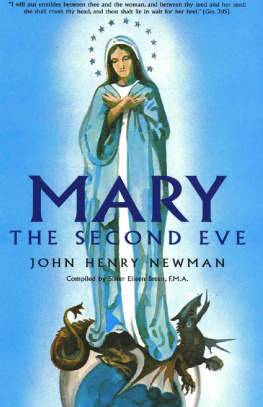
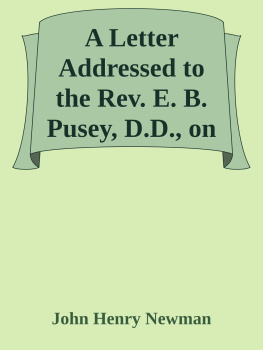
![Blessed John Henry Newman - Blessed John Henry Newman Collection [26 Books]](/uploads/posts/book/371011/thumbs/blessed-john-henry-newman-blessed-john-henry.jpg)

